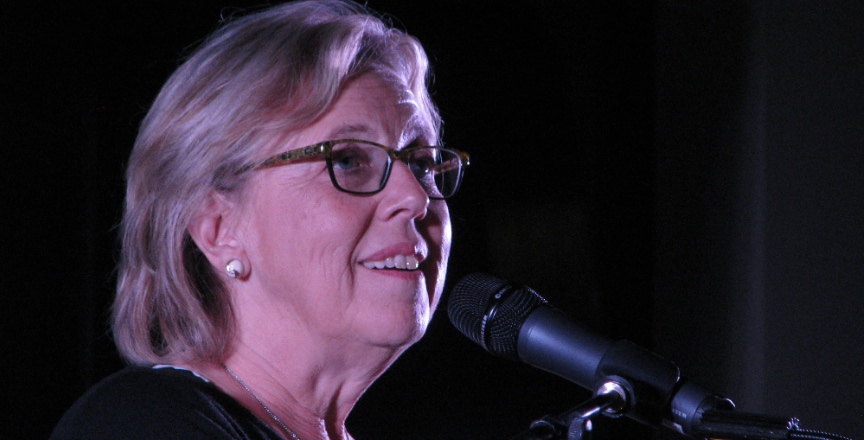Green Party Leader Elizabeth May seems to have shifted from her earlier stated position and now says she could support a Conservative minority government led by Andrew Scheer, if — and it is a very big if — it got serious about climate change.
A July 21 story by Canadian Press reporter Mia Rabson quotes May as saying:
“People change their minds when they see the dynamic of a way a Parliament is assembled and maybe think, ‘Killing carbon taxes isn’t such a good idea if the only way I get to be prime minister is by keeping them.'”
The chances of Andrew Scheer abandoning his core commitment to scrap the carbon tax might be far-fetched.
Scheer has stood shoulder to shoulder with four powerful Conservative or Conservative-aligned premiers and solemnly sworn fealty to the anti-environmental resistance. The federal Conservative leader would be taking an enormous risk if he were to cavalierly break that promise. It might be a way to invite a massive rebellion within his own ranks.
But, for now at least, it is May who is taking the greater risk.
Those who are considering voting Green in this fall’s election should be asking May exactly what her price might be for propping up a Scheer government.
Would it be sufficient for Scheer to maintain the Trudeau government’s carbon tax as is? Is that all it would take for the Conservatives to win Green support?
Could the Greens still support a Scheer government if, for instance, it rolled back the newly enacted and more stringent rules for approving major projects such as pipelines?
Would May and her party be able to hold their noses if the Conservatives acted on another key pledge: to scrap the current clean fuel standard?
And what about other Conservative policies, such as imposing tougher restrictions on asylum seekers, or killing the Liberals’ fund for local news while radically cutting funding for the CBC? Those are not climate-change related. Would the Greens be comfortable supporting them?
Is Elizabeth May being naive?
The Green leader told the Canadian Press she hopes for a minority Parliament because it “would be the very best thing;” but she seems a bit naive about how much power a governing party — even one that only has a minority of seats — can exercise, in our system, without seeking approval of Parliament.
When Andrew Scheer’s predecessor as Conservative leader, Stephen Harper, governed with a minority from 2006 to 2011, he proved that point. Harper could not get everything through the House that he would have liked to, but he ruled with an iron fist nonetheless.
The former Conservative prime minister filled thousands of key appointed positions with his ideological soulmates and fellow partisans, and, where the legislative route was closed to him, used the regulatory process (or lack thereof) to enact his vision for Canada.
Those who remember Harper’s era might recall his government’s ruthless muzzling of scientists and other public servants. The Harper Conservatives even went after public service librarians and picked fights with the Parliamentary Budget Officer and the chief justice of the Supreme Court.
Even though he headed a mere minority government, Harper could surround himself with a powerful coterie of dedicated and personally loyal Conservatives, who applied a narrow and partisan political litmus test to every government decision — the public service and its so-called experts be damned.
An experienced leader such as Elizabeth May should know that what constitutes a government, in our system, is a lot more than the legislative agenda it submits to Parliament.
If she and her party were to vote confidence in a Scheer government, they would be giving that government, and that prime minister, carte blanche to take all kinds of crucial decisions over which Parliament would have no say.
A Canadian PM has even more unrestricted power than a U.S. president
Canada’s prime minister gets to make thousands of appointments to boards, regulatory bodies, crown corporations and, of course, the Senate, without Parliament’s approval. And every day the federal government makes hundreds of administrative decisions, far from the view of the elected members of Parliament, which can have enormous impact on key areas such as the environment.
Even if a Scheer government were to reluctantly accept currently in place anti-global warming legislative measures, how vigorously would it enforce those measures, in practice?
The United States has a different system from ours, but the Donald Trump government has provided an excellent role model for a kindred spirit Canadian government that wishes to subvert and undermine an existing environmental framework. Trump has used his executive powers to systematically destroy almost all the environmental rules and regulations of the Obama era — and many that preceded Obama.
Canadians should bear in mind that, notwithstanding our parliamentary system, Canadian prime ministers have even more untrammeled power than do U.S. presidents.
To cite one example only — Canadian heads of government do not need Parliament’s consent for most key appointments they make. It’s all up to them and them alone. U.S. presidents, on the other hand, must get their country’s Senate to confirm thousands of officials they appoint, from judges to ambassadors to senior public servants.
And so, voting confidence in Andrew Scheer would mean you were ready to support not only the legislation he might present to Parliament, but the way he would run that vast and powerful entity we call the federal government.
Before voters take her seriously, Green Party Leader Elizabeth May must be frank and clear about what her newfound willingness to partner with the Scheer Conservatives would mean in practice.
Karl Nerenberg has been a journalist and filmmaker for more than 25 years. He is rabble’s politics reporter.
Photo: Laurel L. Russwurm/Flickr



